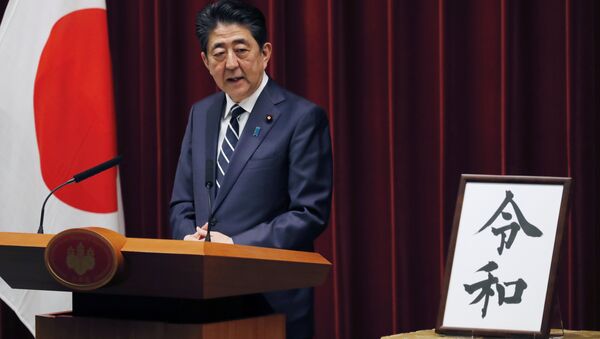In Japan, people are referred to their by family name first and their given name second, as is also customary in China and Korea.
— revived night king stan (@ArdoOmer) May 22, 2019
However, for more than almost a century and a half, Japanese names have been written differently when translated, with the given name coming first. The practice became conventional during the Meiji Era in the mid-19th to early 20th century, a period during which Japan became a modern, industrialized nation with scientific, technological and political Western influences.
— Gearoid Reidy (@GearoidReidy) May 22, 2019
However, that practice may soon change, with Japanese Foreign Minister Taro Kono (or, in keeping with the new standard, Kono Taro) revealing Tuesday that he plans to request that international media outlets write the names of Japanese people with the family name first.
— Uncle Reiwa (@Adamukun) May 22, 2019
"I plan to ask international media organizations to do this. Domestic media outlets that have English services should consider it, too," Kono told reporters at a news conference Tuesday, also noting that Japanese Prime Minister Shinzo Abe's name should instead be written as "Abe Shinzo." Kono also referred to to a report written almost 20 years ago by the Japanese National Language Council advising that Japanese names be written with the family name first. A 2000 poll by the Japanese Agency for Cultural Affairs revealed that, at the time, 34.9% of Japanese people preferred the surname first, 30.6% preferred the given name first and 29.6% had no preference.
— Jake Nelson (@JakeNelsonMN) May 22, 2019
During another news conference Tuesday, Japanese Education Minister Masahiko Shibayama also announced plans to urge other government bodies in Japan to adopt the Japanese format for names in English, The Japan Times reported.
— Kat Callahan (@JezebelKat) May 22, 2019
The request for change comes at a notable point in Japan's history.
The Reiwa Era in Japan began on May 1, 2019, and marks the day that Emperor Akihito's son, Naruhito, became the 126th emperor of the nation. In addition, other events in the near future, including a G20 summit in Osaka next month and the 2020 Tokyo Olympics, will draw international attention to Japan.
However, the name change may be slightly more complicated than it appears upon first glance. After all, the practice began in Japan, and the Japanese government itself follows Western naming conventions in its translated documents. Foreign names in Japan are written phonetically in Japanese in the same pattern they are written in the original language, Kotaku notes. And not everyone is excited about the change. Some translators have already taken to social media to voice complaints, and former Governor of Tokyo Yoichi Masuzoe tweeted that the change will just create undue "hassle and cost."
— 舛添要一 (@MasuzoeYoichi) May 21, 2019
The Associated Press (AP) style guide and the Chicago Manual of Style have not yet released any statements addressing the potential name change. The AP style guide does not specifically outline how Japanese names should be ordered, but AP stories always refer to the prime minister of Japan as "Shinzo Abe."




